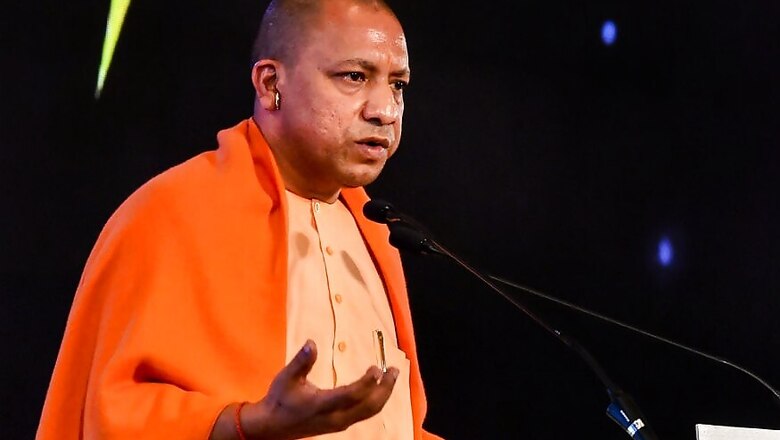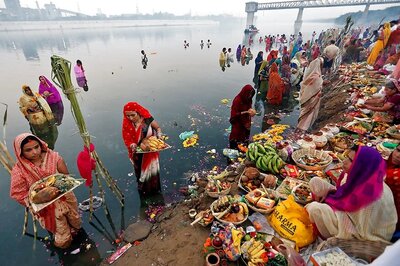
views
Lucknow: Just months before the 2019 electoral battle, the Yogi Adityanath government is all set to bring the 'quota within quota' formula back to spotlight. Experts believe that a possible threat from an SP-BSP alliance has forced the BJP government to expedite the process after 16 years.
Home Minister Rajnath Singh, who was then the chief minister of UP, had in 2002 tried to implement the formula, but the move had faced many legal hurdles. Over the years, subsequent SP and BSP governments kept the issue buried.
Faced with a possible SP-BSP alliance ahead of 2019 general elections, sources say that the BJP is now mulling to implement the social justice committee report.
The government-constituted social justice committee, which recently submitted its report, has proposed classification of 79 Backward castes in three categories, depending upon their population and the overall quota benefit they have got over the years.
While the dominant backward castes like Ahir, Yadav, Gwala and Kurmi have been kept in the affluent sub section and proposed for seven per cent of sub quota, Kushwaha, Lodh, Kachar and several others have been have been categorised as most backward and have been allocated 11% quota.
The remaining nine per cent quota of the 26%, has been proposed for the third category of backward castes like Mallah, Nishad, Kisan, Ghosi and Gaddi.
Experts say that there is a "strong logic" behind the move. BJP can hope of disrupting the backward caste vote bank by trying to win over the non-Yadav non-Kurmi castes. Both are considered to be more inclined towards the Samajwadi Party. However on the face of it, BJP is choosing to play safe.
"We are committed to sabka saath, sabka vikas (development for all). The committee was constituted to bring up certain facts. Now, the report is with the government. Wait for the government to respond," said UP BJP spokesperson Chandra Mohan.
There are two problems with the BJP's stand on the quota formula. Firstly, it does not want to openly be seen as playing the caste card, and secondly, implementation on the recommendations can also lead to a rift within its allies.
"Castes likes Yadav and Kurmi have deeper benefits beyond their population. It's time now to correct the anomalies. If BJP will not implement the recommendations, voters will teach it a lesson in 2019 polls," said BJP ally and UP minister Om Prakash Rajbhar, whose own caste has been put under the 11% category.
On the other hand, Union minister Anupriya Patel is reportedly unhappy with the report. Her party Apna Dal has a strong base among the Kurmis, who have been put under the seven percent bracket in the report (a copy of which is with News18).
BSP, SP and the Congress too are in a fix, unable to come up with a clear position on this demand for 'quota within quota' in the backward caste reservation pie.
BSP spokesperson Anubhav Chak and Congress's Akhilesh Pratap Singh accused BJP of playing "dirty caste politics". They said their parties will continue to focus on issues of farmers' distress, unemployment and failed governance of the Modi-Yogi governments.
Samajwadi Party has for the moment chosen not to respond on the issue. Sources say while party is clearly annoyed by Yadav-Kurmi's being put in lowest quota category, it also doesn't want to antgonise other castes by openly saying so.
No doubt then that the backward caste quota recommendations have put all political parties in a fix just months before the polls. A lot depends upon how BJP wishes to respond on it. Others of course are buying time and waiting for the BJP to respond first.

















Comments
0 comment